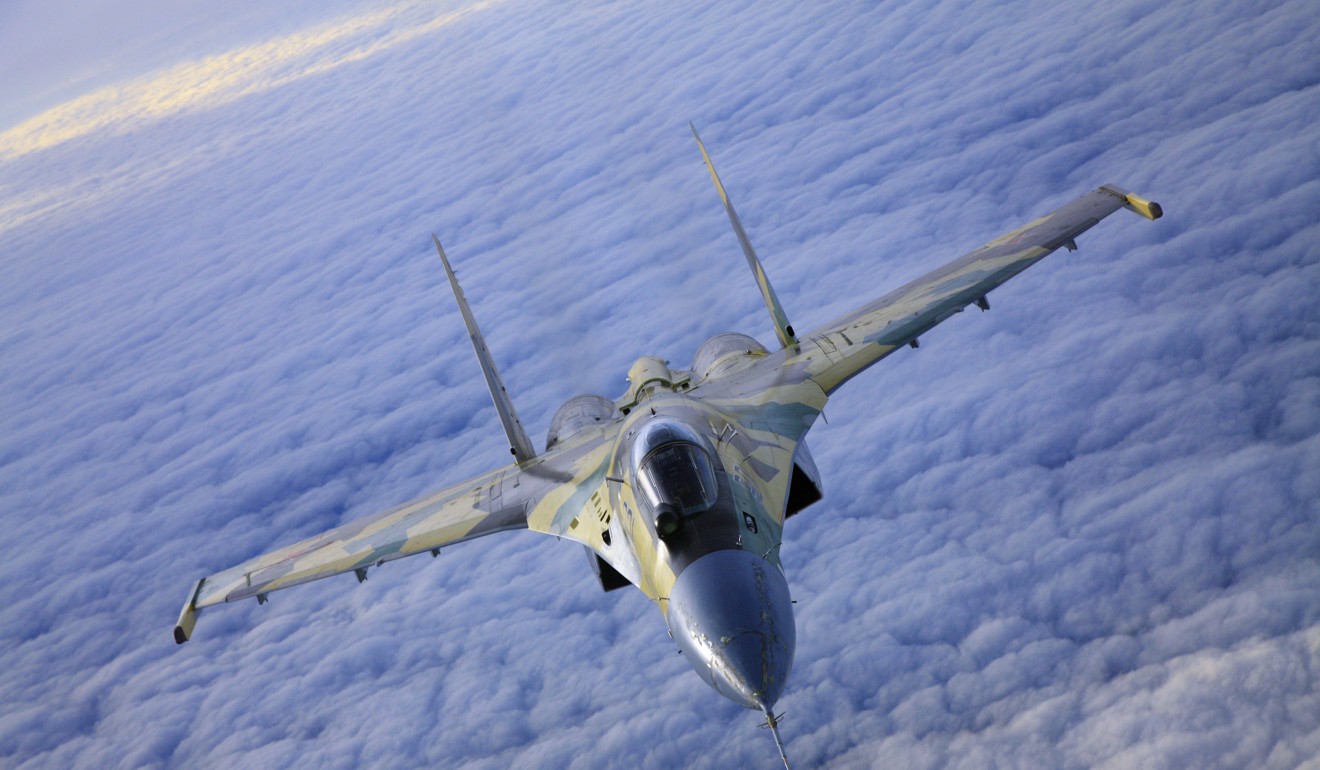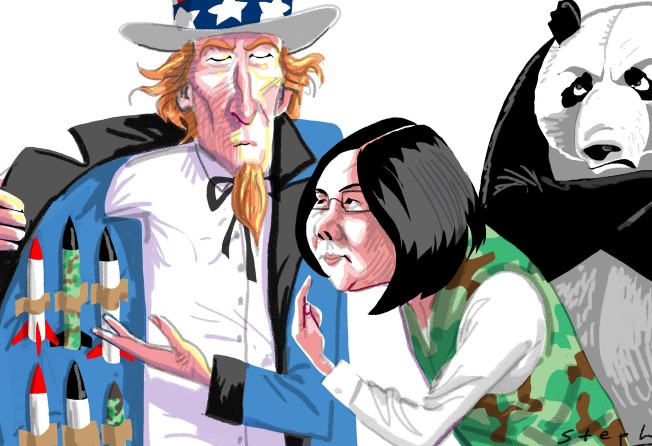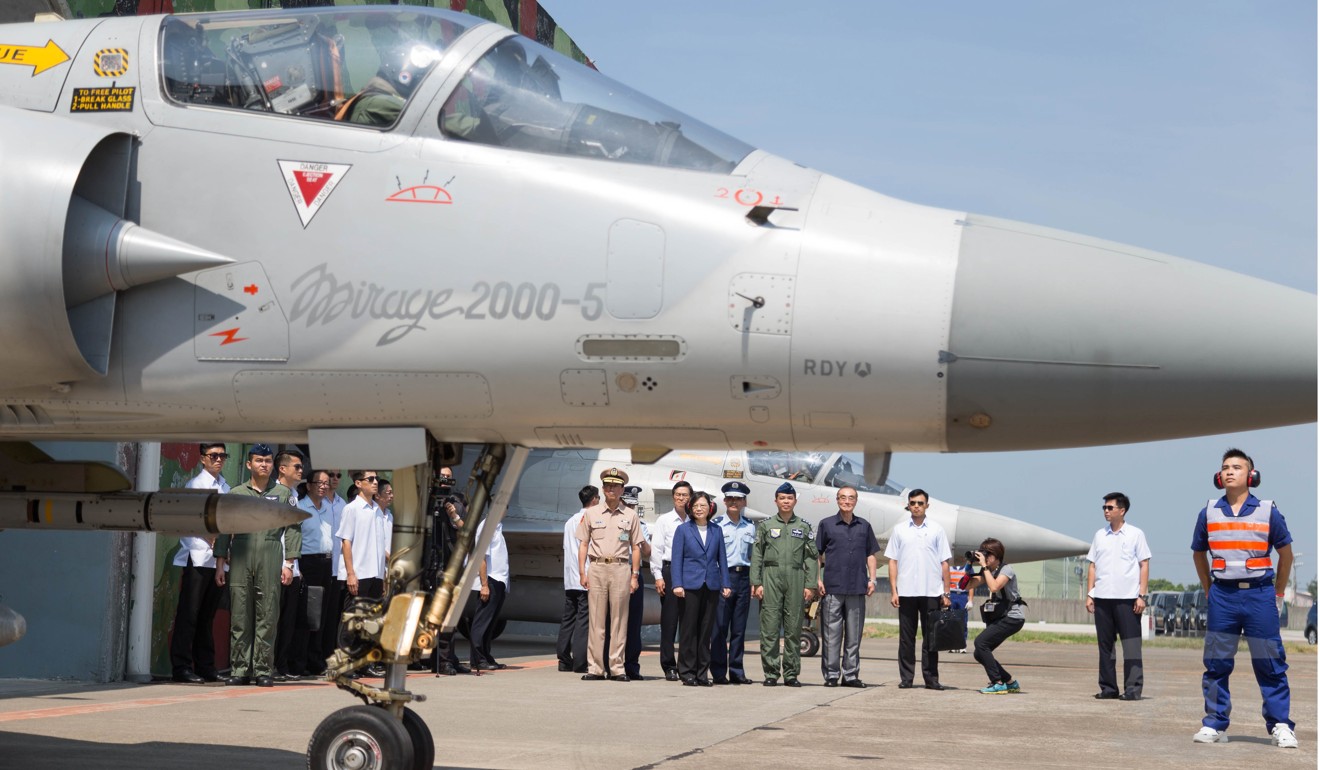
Behind the US’ smaller arms package to Taiwan lie bigger problems for China
Michal Thim says it’s not the size of the most recent arms sale to Taipei that should concern Beijing, but the increasing frequency of the deals and the fact Europe now seems willing to confront China

United States arms sales to Taiwan usually provoke an angry rebuke from Beijing. The notification, published by the Defence Security Cooperation Agency on September 24, indicating future arms sales to Taiwan valued at some US$330 million, is a case in point.
China’s foreign ministry spokesperson Geng Shuang denounced the sale as a breach of China’s sovereignty and demanded an end to US-Taiwan arms sales. Needless to say, Taiwan has praised the decision and thanked Washington for its continuous support.
Beijing’s go-to reaction in the past was to suspend military exchanges with the US, knowing that the Pentagon places a high value on military-to-military contacts with the People’s Liberation Army. Military exercises around Taiwan are another popular item in Beijing’s toolbox.
However, this time, due to an overabundance of disputes between Washington and Beijing, China also had to respond to the US placing sanctions on the PLA’s Equipment Development Department for the purchase of Russian Sukhoi Su-35 fighter jets and advanced air defence systems from Moscow’s state exporter Rosoboronexport, which is under US sanctions.
In response, Beijing cancelled the US Navy warship USS Wasp’s visit to Hong Kong and planned talks between the two militaries.

On the face of it, the content of the latest arms sale does not look particularly concerning to Beijing. The total size of the sale is much less than the US$1.4 billion approved last June.
Unlike the sale in 2017 – which included heavyweight torpedoes for Taiwan’s submarine force - the 2018 sale does not bring any new capability for Taiwan. The whole package is reserved for the supply of spare parts and logistics support for Taiwan’s fighter fleet and other planes, including F-16 Vipers and indigenously developed defence fighters.
The sale is part of the Cooperative Logistics Supply Support Arrangement deal. The spare parts package may seem underwhelming considering that this is a second arms sale to Taiwan under Donald Trump’s administration. Taipei has been reportedly considering a letter of request for M1 Abrams battle tanks or fifth-generation F-35B stealth jets, but no official order has been placed yet.
However, the content of the sale is not the most crucial aspect, although its utility to Taiwan’s air force cannot be overstated. The fact that the sale is just about supply and logistics suggest a change in attitude on the US side.
Why closer relations between the US and Taiwan make China uncomfortable
First, the items were approved on a continuing basis and as needed and available. Second, the Trump administration has not only moved from large bundles every few years to sales on an annual basis, but it may also indicate a move away from bundling orders altogether.
In the past, and especially during Barack Obama’s two terms, the US government came across as too accommodating in trying to navigate relations with Taiwan in a way that would not upset Beijing, and Chinese leaders seized on every opportunity to capitalise.
The result was that arms sales to Taiwan were bundled into large packages and separated by long periods of no activity, though the ever-growing military capability of the PLA warranted a response via robust arms sales, as presumed by the Taiwan Relations Act of 1979. Something as routine as a supply of spare parts under the logistics agreement became subject to political considerations. Now, Washington may be returning to normal.
The arms sales notification was not the only good news for Taiwan. Lockheed Martin announced that it had received an order for 18 Sniper advanced targeting pods from Taiwan. Taiwanese pilots tested two sets of the pods after their sale was announced in 2015, and the new order indicates that the trials were satisfactory. Sniper targeting pods increase Taiwan’s capability to strike targets from greater distances and in low visibility.

However, Beijing does not just have the US to worry about. Taiwanese media reported on September 26 about two contracts with France on training and upgrades to nearly 50 French-made Mirage 2000 high-altitude fighter jets in Taiwan’s air force inventory.
Moreover, Taiwan’s defence ministry decided on a European design for Taiwan’s Indigenous Defence Submarine project. The media has speculated that French shipbuilder Direction des Constructions Navales Services and German Howaldtswerke-Deutsche Werft were among the contenders, and one of them is likely to be the winner.
The French connection to Taiwan’s defence modernisation is a timely reminder that European defence industry companies are present and active in Taiwan. With France and Germany leading European resistance against adverse effects of the Belt and Road Initiative, and greater scrutiny over Chinese investment in and acquisition of strategic industries, Europe’s arms suppliers may find the situation ripe for taking a greater share in Taiwan’s defence projects. Their governments may very well give them the green light.
It is too early to say if the latest arms sale to Taiwan will deliver on its promise of normalising the process of arms sales and (to the extent possible) depoliticising decisions on arms sales by removing undue deference to Beijing’s perceptions.
America’s Taiwan policy includes the peaceful resolution of the dispute between Taipei and Beijing, one that will respect the will of Taiwanese people. To this end, arms sales should be judged on their contribution to Taiwan’s defence posture and the gravity of the military threat stemming from Beijing’s actions and the PLA’s capabilities.
What is clear is that the US is eager to reshape the whole process of arms sales in a direction that would be beneficial for Taipei and Washington. Moreover, recent activity from European suppliers might indicate a greater willingness to confront Beijing.
China’s proclivity for doing more of the same, including sanctions on military exchanges with the US and military intimidation of Taiwan, seems to be working in the opposite direction.
Michal Thim is a Taiwan analyst at the Association for International Affairs (Czech Republic) and an Asia-Pacific Desk contributing analyst for Wikistrat